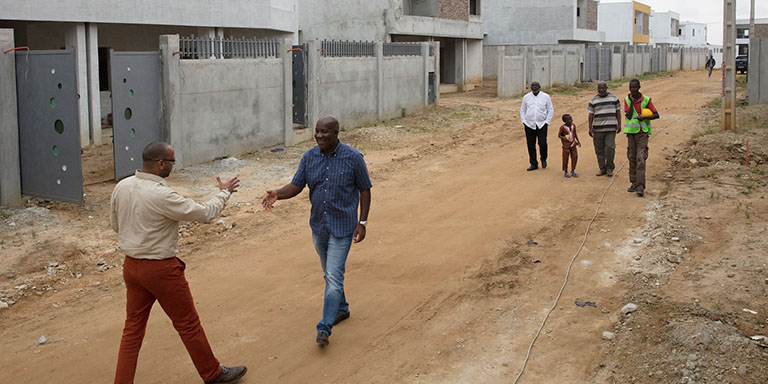By 2030, almost 60 percent of the world’s 8.5 billion people will live in urban areas. Yet, in emerging markets. the housing sector is falling behind this rapidly urbanizing world. Today, 1.2 billion people live in substandard housing. By 2030, an estimated 3 billion people will need new housing and basic urban infrastructure. Worse, 93 percent of adults don’t have access to formal housing finance[1]. The affordable housing gap stands at $650 billion a year and continues to grow as developing countries urbanize.[2]
ADDRESSING THE HOUSING CRISIS WITH PRIVATE SECTOR INVESTMENT
Replacing today’s inadequate housing will cost trillions of dollars—necessitating significant private sector investment. To help crowd in private finance for development, the International Development Association—the World Bank’s fund for the poorest—created a $2.5 billion IDA Private Sector Window (PSW) as part of its record $75 billion replenishment. Leveraging IDA resources, the PSW is expected to mobilize at least $4-6 billion in additional private sector investment in the poorest and most fragile markets by 2020. Through blending concessional IDA funds with private investment, the PSW helps mitigate the uncertainties and risks deterring investors from entering frontier markets, unlocking needed investment for high-impact projects across key development areas—including affordable housing. The PSW is enabling the International Finance Corporation (IFC)—a member of the World Bank Group and leading investor in housing finance in emerging markets[3]—to scale up its housing investments in two key ways:
LOWERING MORTGAGE RATES FOR LOW-INCOME BORROWERS
In developing countries, mortgage finance is almost non-existent for poorer people. For example, in West Africa, less than 7 percent of households can afford a home; mortgage rates are very high, and loans must be repaid within just eight years on average. West African financial institutions are unable to lend at more affordable rates or for longer periods, hampered by short-term liabilities and poorly developed local capital markets. To kickstart a market for longer-term affordable mortgages in the region, IFC is investing in regional mortgage refinancing company Caisse Régionale de Refinancement Hypothécaire (CRRH) with support from the PSW. Foreign exchange risks previously limited the availability of local currency financing and prevented such a project from being commercially viable. However, the PSW is reducing the foreign currency risk through acting as a swap counterparty, enabling IFC’s investment and serving as a catalyst to attract other private investors. Thus, the PSW enables IFC to provide cost-effective local currency financing, which will allow CRRH to extend the tenor of their bonds—making mortgages more affordable and paving the way for other long-term mortgage products. Building on this experience, IFC is supporting a similar project with the PSW in Bangladesh—which has one of the largest housing deficits in the world—as well as exploring similar ventures in East Africa.
DRIVING DOWN CONSTRUCTION COSTS IN DEVELOPING COUNTRIES
Every day, African cities become home to 40,000 more people, many of whom find themselves without a roof over their heads. The cost of construction in Africa is high—up to three times higher than in India or China. Businesses struggle to secure finance for construction and low supplies of raw materials, such as cement, drive up prices. IFC is committed to providing more affordable housing in the region and encouraging an industry that has the potential to be a major employer. The PSW can help IFC scale up affordable housing finance and construction projects in Africa. Through blending concessional funds alongside IFC and other private investment, the PSW can reduce investment risks and lower interest rates on loans, leading to more affordable homes and stimulating the wider economy. This will build needed housing units and create jobs—on average five jobs per home built. IFC is also exploring ways the PSW can boost uptake of environmentally friendly building materials, such as energy efficient bricks. Providing concessional financing to green material manufacturers can help lower production costs, building demand for these products and enabling them to compete with cheaper, less efficient materials.
[1]https://www.worldbank.org/en/topic/financialsector/brief/housing-finance

